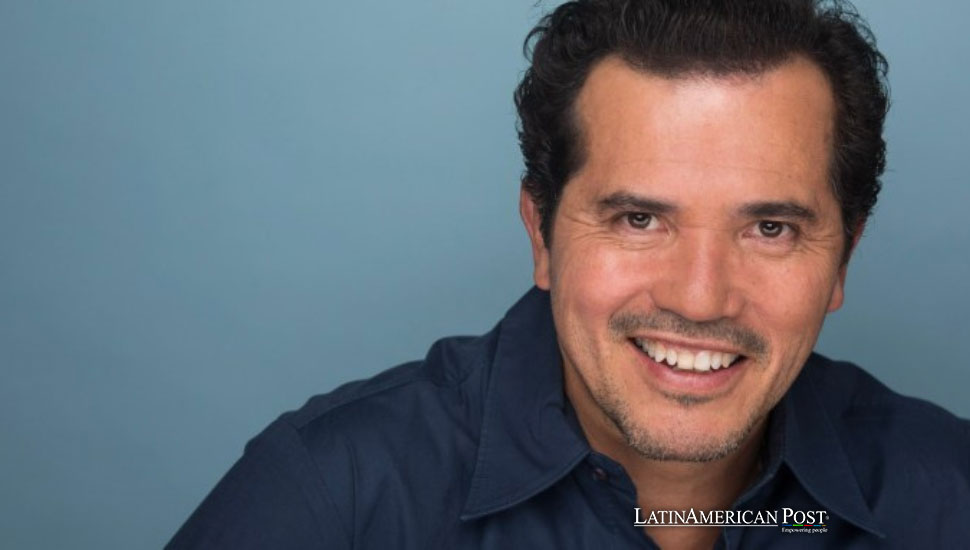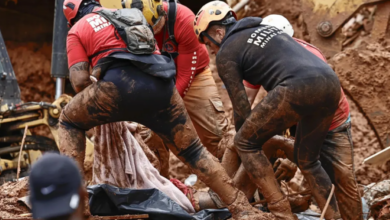Colombia’s Leguizamo Reclaiming Latin American History for the World in New Series

Colombian-born actor and activist John Leguizamo is rewriting the narrative of Latin American history with his new PBS series, “VOCES American Historia: The Untold History of Latinos.” As The Independent reports, the series aims to illuminate the overlooked contributions and complex histories that shaped the Americas long before Columbus.
Reclaiming Latin American History Beyond Columbus
Colombian-born actor John Leguizamo has long been a powerful voice for Latinx representation in Hollywood, but his latest project takes his advocacy to a new level. In the three-part PBS documentary series VOCES American Historia: The Untold History of Latinos, Leguizamo dives into the rich and often overlooked history of Latin America, reclaiming it from the Eurocentric narrative that usually begins with Christopher Columbus.
For centuries, mainstream history has relegated Latin American contributions to the sidelines, beginning with the arrival of European settlers in 1492. However, as Leguizamo points out, Latin America’s story began thousands of years earlier with the rise of mighty civilizations such as the Inca, Maya, and Aztec empires. “We had incredible achievements in medicine, engineering, and science,” Leguizamo says in interviews with The Independent, “and that legacy continues to influence us today.”
The documentary, airing on PBS, is designed to set the record straight by exploring these ancient civilizations and following the journey of Latinx contributions through critical moments in U.S. history. The series seeks to inspire a sense of pride and belonging among Latin Americans and the broader public from the American Revolution to the Civil War and the modern fight for civil rights.
“87% of Latin contributions to America are absent from our textbooks,” Leguizamo laments. “This is our way of correcting that.”
Ancient Civilizations As Foundation of Latin American Power
The first part of the series dives deep into the legacy of the Inca, Maya, Aztec, and Taino civilizations. As The Independent highlights, these “OG civilizations” were the bedrock of Latin American identity, and their achievements in architecture, astronomy, medicine, and mathematics were groundbreaking. These empires thrived for thousands of years, long before European colonizers arrived, and their impact is still felt today.
Leguizamo shines a spotlight on the innovative medical practices of the Inca, who developed surgical techniques like skull surgery with higher survival rates than similar procedures in Europe at the time. The Maya, known for their sophisticated calendar systems and astronomical observations, and the Aztecs, with their architectural marvels like the Templo Mayor, played significant roles in shaping what would later become Latin America. The Taino, a people indigenous to the Caribbean, were among the first to face the devastating consequences of European colonization, a tragic event that set the tone for centuries of exploitation.
For Leguizamo, this history is not just academic—it’s personal. “Our people were scientists, engineers, and healers,” he emphasizes. “To know that gives me strength. It’s something I want my daughter to know and something every Latino kid should take pride in.”
Leguizamo and co-creator Ben DeJesus aim to correct the erasure of these achievements from mainstream narratives. As the series unfolds, viewers are introduced to historians and anthropologists who bring these ancient civilizations back to life, offering insights into how they shaped the Americas long before Columbus’s arrival.
Latin Americans in U.S. History: Unseen but Integral
In addition to exploring ancient civilizations, VOCES American Historia delves into the contributions of Latinos to the founding and building of the United States. As The Independent notes, this portion of the series covers the American Revolution, the Civil War, and other pivotal moments in U.S. history, where Latinx figures played crucial roles that are rarely highlighted.
One such figure is Rear Admiral David Glasgow Farragut, a Latino naval officer who famously led Union forces to victory in the Battle of Mobile Bay during the Civil War. His bold command, “Damn the torpedoes, full speed ahead!” became one of the most famous lines in U.S. military history, yet Farragut’s Latino heritage is often overlooked.
The series also covers the little-known contributions of Latinos during the American Revolution, where fighters from Spanish-speaking territories played a role in the colonies’ victory over Britain. Leguizamo and DeJesus stress that these contributions are integral to American history rather than footnotes. “Imagine how others would see us if they knew our rich history. Imagine how we would see ourselves,” Leguizamo says, his words carrying the weight of centuries of omission.
The Independent highlights that the documentary series also touches on moments like the 1917 protests led by Carmelita Torres, a 17-year-old housekeeper who stood up against the inhumane treatment of Mexicans crossing the U.S. border. These stories, long buried, are brought to the surface with care and urgency, reminding viewers of Latinos’ profound impact in shaping the country.
A Fight for Civil Rights and Cultural Pride
The third part of VOCES American Historia shifts focus to the more recent struggles of Latinos for civil rights in the United States, covering the 20th century to today. This segment explores the fight to preserve Latino culture, language, and heritage in a country that has often marginalized or outright rejected it.
Leguizamo, whose own activism has been fueled by the exclusion of Latinos in mainstream media and history, draws parallels between the historical fight for Latino rights and the ongoing challenges faced by the community today. He points out that despite Latinos making up nearly 20% of the U.S. population, their contributions are still underrepresented in textbooks, the media, and popular culture.
“We’ve made strides, but we still have a long way to go,” Leguizamo tells The Independent. “Our people helped build this country, yet we’re still fighting for equal recognition. That’s why this series is so important. It’s about reclaiming our place in history.”
The series doesn’t shy away from the darker aspects of Latino history in the U.S., including the struggles against systemic racism, economic inequality, and political disenfranchisement. However, Leguizamo’s message is ultimately about resilience. “To me, Latin people are the most resilient people on Earth because we came from almost complete genocide,” he says. “Our culture was destroyed, our religion, our language. And yet here we are, contributing billions to the U.S. economy and continuing to fight for our place at the table.”
Telling Our Own Stories: A Personal Mission
For Leguizamo and DeJesus, VOCES American Historia is not just a documentary—it’s a personal mission to rewrite the narrative of Latin American history for future generations. The project was born from Leguizamo’s experience with his Broadway show, Latin History for Morons, where he sought to educate himself and his son on the contributions of Latinx figures to American history. That journey of self-discovery and empowerment has evolved into a broader effort to ensure that Latino stories are told and preserved.
“We look at this as just the beginning,” says DeJesus in his interview with The Independent. “This series is like volume one of a virtual history book. And the book is far from finished. There’s so much more to uncover, so much more to share.”
The documentary also features actors like Benjamin Bratt, Bryan Cranston, and Rosie Perez, who lend their voices to bring historical figures and stories to life. Leguizamo and DeJesus hope that by telling these stories in a compelling and accessible way, they can reach audiences beyond the Latino community. As DeJesus points out, “This isn’t just a Latino story—it’s an American story. And we want everyone to see themselves in it.”
Also read: Colombian J Balvin’s Journey From Global Icon to Philanthropic Leader
Ultimately, VOCES American Historia is about reclaiming a history buried for too long. It reminds us that Latin American history doesn’t start with Columbus—it begins with the civilizations that built the Americas and the people who have continued to shape its destiny.





